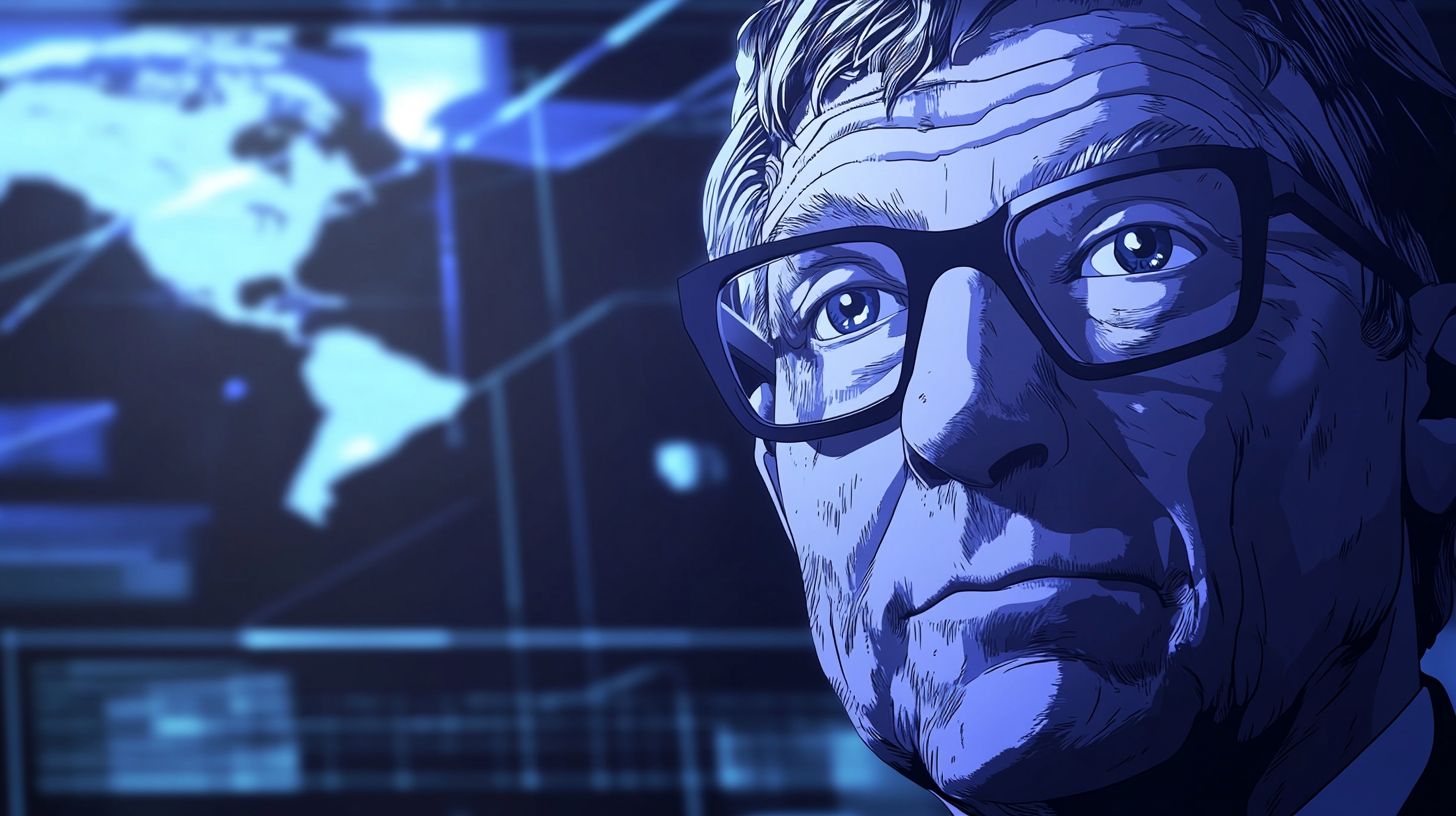Microsoft co-founder Bill Gates has made striking pronouncements about the transformative power of artificial intelligence, suggesting a future where AI could handle the majority of tasks currently performed by humans. Within the next decade, Gates anticipates that advancements in AI will render human labor unnecessary “for most things.”
During an interview on NBC’s “The Tonight Show” with Jimmy Fallon in February 2025, Gates elaborated on this vision. He explained that specialized expertise, which is currently “rare,” such as that of “a great doctor” or “a great teacher,” will become democratized by AI.
“The era we’re just starting is that intelligence is rare — a great doctor or a great teacher. With AI, over the next decade, that will become free, commonplace — great medical advice, great tutoring,” Gates stated.
He acknowledged the profound nature of this shift, noting, “It’s kind of profound because it solves all of these specific problems like we don’t have enough doctors or mental health professionals. But it brings with it so much change.”
When directly asked by Fallon if humans would still be needed in this new AI-driven era, Gates offered a blunt assessment: “Not for most things.”
In a separate conversation in early 2025 with Harvard University professor Arthur Brooks, Gates referred to this impending shift as the dawn of an era of “free intelligence.” He has emphasized that this will lead to rapid advancements in AI-powered technologies that are broadly accessible and will permeate nearly every facet of life, from enhanced medical treatments and diagnostics to widely available AI tutors and virtual assistants.
Gates has not shied away from the unsettling aspects of this rapid technological evolution. “It’s very profound and even a little bit scary — because it’s happening very quickly, and there is no upper bound,” he told Brooks.
This perspective fuels the ongoing debate about AI’s ultimate role: will it augment human capabilities or largely replace the human workforce?
While some remain optimistic about AI enhancing productivity and creating new job opportunities, others, like Microsoft AI CEO Mustafa Suleyman, offer a more cautionary view. In his 2023 book “The Coming Wave,” Suleyman argued that AI tools “will make us smarter and more efficient for a time, but they are fundamentally labor replacing,” warning of a potentially “hugely destabilizing” impact on job markets.
Despite the potential for widespread job displacement, Gates maintains a degree of optimism, particularly regarding AI’s potential to drive innovation in critical areas. He wrote in 2023 about AI’s capacity to deliver “breakthrough treatments for deadly diseases, innovative solutions for climate change, and high-quality education for everyone.”
However, he does concede that some roles may remain uniquely human. Speaking to Fallon, Gates suggested, “There will be some things we reserve for ourselves.” He offered the example of professional sports, implying people would likely prefer to watch humans compete. But for many fundamental tasks, the outlook is different: “But in terms of making things and moving things and growing food, over time those will be basically solved problems,” Gates elaborated.
Gates also acknowledged the “understandable and valid” concerns surrounding AI’s development, such as the propensity for errors in current AI models and their potential to facilitate the spread of misinformation.
The speed of AI’s advancement has reportedly taken even Gates by surprise. He recounted in a 2023 blog post challenging OpenAI to develop an AI capable of passing an Advanced Placement Biology exam, a task he anticipated would take several years. “They finished it in just a few months,” Gates wrote, hailing the achievement as “the most important advance in technology since the graphical user interface.”
Looking ahead, Gates strongly encourages young innovators to seize the opportunities presented by artificial intelligence. “If I were starting a business today, it would be an AI-centric company,” he told CNBC Make It in September 2024.
He further urged aspiring entrepreneurs, “I’m encouraging young people at Microsoft, OpenAI, wherever I find them: ‘Hey, here’s the frontier. Because you’re taking a fresher look at this than I am, and that’s your fantastic opportunity.'”
Years prior, at a 2017 event at Columbia University, Gates had already identified AI as the field he would focus on if starting anew, calling the contemporary work in artificial intelligence “at a really profound level.” His recent statements indicate an even stronger conviction about AI’s imminent and far-reaching impact on society and the future of work.








